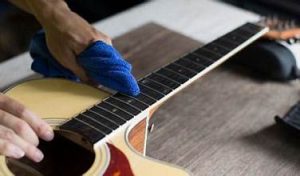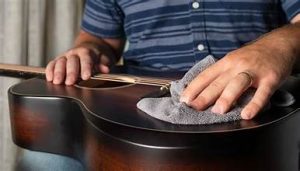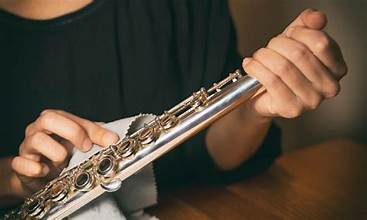Uncategorized
How to Maintain Your Musical Instruments: Tips for Longevity
How to Maintain Your Musical Instruments: Tips for Longevity
Investing in a musical instrument is not just a financial decision but an emotional one. To ensure your instrument performs at its best and lasts for years, proper care and maintenance are essential. This guide will provide you with practical tips to keep your instrument in top condition, regardless of its type.
1. General Maintenance Tips for All Instruments
Clean Regularly
- Use a soft, lint-free cloth to wipe down your instrument after each use to remove oils, sweat, and dust.
- Avoid using harsh cleaning agents unless recommended by the manufacturer.
Store Properly
- Keep your instrument in a dedicated case to protect it from dirt, moisture, and temperature fluctuations.
- Store in a cool, dry place away from direct sunlight, heaters, or air conditioners.
Handle with Care
- Always wash your hands before playing to prevent transferring oils and grime.
- Use proper grips or stands to avoid accidental drops.
2. Maintaining String Instruments
(String instruments include guitars, violins, cellos, and basses.)
Change Strings Regularly
- Replace strings every few months or sooner if they show signs of wear.
- Use the correct gauge and type of string recommended for your instrument.
Protect the Finish
- Clean the body with a special polish made for string instruments.
- Avoid placing the instrument on hard or rough surfaces to prevent scratches.
Keep the Bridge and Fingerboard Clean
- Use a soft brush or cloth to clean the fingerboard.
- Check that the bridge is correctly aligned and not warped.

3. Maintaining Keyboards and Pianos
Dust and Clean the Keys
- Wipe keys gently with a slightly damp cloth to remove dirt and oils.
- Avoid excessive moisture, as it can damage the keys.
Tune Regularly
- Acoustic pianos should be tuned at least twice a year by a professional.
- Digital keyboards do not require tuning but should be kept free of dust and debris.
Cover When Not in Use
- Use a dust cover to protect the keys and interior mechanisms.
- Keep liquids and food away from the instrument to prevent accidental spills.
4. Maintaining Wind Instruments
(Including flutes, saxophones, clarinets, and trumpets.)
Clean Mouthpieces
- Wash mouthpieces with warm, soapy water after each use.
- Use a mouthpiece brush for thorough cleaning.
Check and Replace Pads
- Inspect pads on woodwind instruments for wear and replace them as needed.
- Ensure proper alignment to avoid air leaks.
Oil Valves and Joints
- Apply valve oil to brass instruments regularly to maintain smooth operation.
- For woodwinds, use cork grease to prevent joints from drying out or cracking.
5. Maintaining Percussion Instruments
(Including drums, cymbals, and xylophones.)
Clean Drumheads
- Wipe drumheads with a damp cloth to remove stick marks and dirt.
- Replace drumheads if they become worn or lose their tone.
Polish Cymbals
- Use a cymbal cleaner to restore their shine and remove tarnish.
- Avoid abrasive cleaning tools that could scratch the surface.
Tighten Hardware
- Check drum hardware for loose screws or bolts and tighten as needed.
- Use proper tuning keys to adjust tension for the best sound.

6. Maintaining Electronic Instruments
(Including electric guitars, synthesizers, and amplifiers.)
Protect Electronics
- Avoid exposing electronic instruments to moisture or extreme temperatures.
- Use surge protectors to shield amplifiers and keyboards from power fluctuations.
Cable Care
- Store cables properly to prevent tangles and damage.
- Replace frayed or malfunctioning cables immediately.
Update Firmware
- For digital instruments, check for software or firmware updates to improve functionality.
7. Maintaining Brass Instruments
(Including trumpets, trombones, and tubas.)
Clean the Tubing
- Use a flexible cleaning brush to remove buildup inside the tubing.
- Flush with warm water regularly to maintain hygiene.
Oil Valves and Slides
- Apply slide grease and valve oil to ensure smooth operation.
- Avoid over-oiling, as it can attract dust.
Polish the Exterior
- Use a brass polish or a soft cloth to maintain the instrument’s shine.
- Avoid abrasive cleaners that can scratch the finish.

8. Common Mistakes to Avoid
- Skipping Regular Cleaning: Dirt and grime can build up, affecting the sound quality and longevity.
- Improper Storage: Leaving instruments exposed to extreme temperatures or humidity can cause warping, cracking, or rust.
- DIY Repairs: Attempting complex repairs without expertise can worsen the issue. Always consult a professional.
9. When to Seek Professional Help
- Unusual sounds or loss of tone.
- Visible cracks, dents, or major wear.
- Difficulty in tuning or playing.
- Regular maintenance like piano tuning or string instrument adjustments.
Why Maintenance Matters
Proper care extends the life of your instrument and ensures it delivers optimal performance. A well-maintained instrument is also more enjoyable to play, helping you stay motivated and inspired.
Discover Quality Musical Instruments and Accessories
At OneBestLuxe Texas, we not only offer top-quality musical instruments but also provide expert advice on maintenance. Browse our selection of cleaning kits, storage cases, and accessories designed to keep your instruments in peak condition.
Start your musical journey today and let us help you keep your instruments playing beautifully for years to come. Visit onebestluxetexas.com for all your musical needs!

